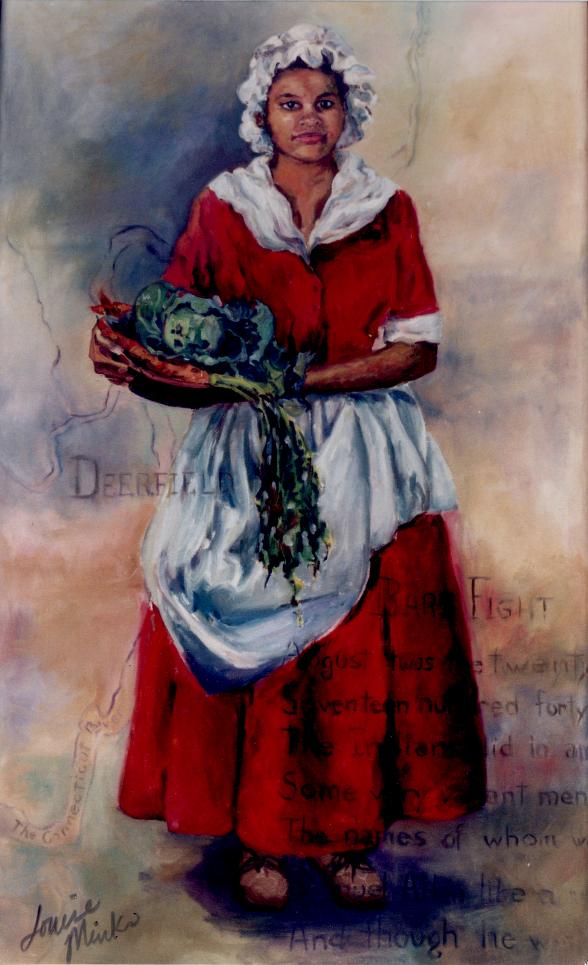[dropcap size=small]L[/dropcap]ucy Terry Prince, known as Lucy Terry, (c. 1730–1821) was brought to Rhode Island from Africa. Her future husband purchased her freedom before their marriage in 1756. She composed a ballad, Bars Fight, about a 1746 incident. It was preserved orally until being published in 1855. It is considered the oldest known work of literature by an African American.
Lucy Terry was taken from Africa to Rhode Island by slave traders when she was four years old. She was baptized a Christian at age five, with the approval of her enslaver, Ebenezer Wells of Deerfield, Massachusetts; she became a full church member in 1744. Terry remained enslaved in the Wells household until 1756, when a successful free Black man named Abijah Prince from Curacao purchased her freedom and married her in 1756. Abijah Prince was twenty-four years her senior, a landowner and one of the charter founders of the town of Sunderland, Vermont. The Princes moved to Guilford, Vermont, and had six children: Tatnai, Cesar, Drucilla, Durexa, Abijah, Jr and Festus. Cesar fought in the Revolutionary War.
Although Lucy Terry was a poet, only one of her poems, a ballad called Bars Fight, has survived. Bars Fight is a ballad about attack upon two whyte families by Native Americans on August 25, 1746. The attack occurred in an area of Deerfield called The Bars, which was a colonial term for a meadow. The poem was preserved orally until it was finally published in 1855 in Josiah Gilbert Holland’s History of Western Massachusetts. This poem was the earliest existing poem of an African American, and is the only known work by Terry.
In 1785, when a neighboring whyte family threatened the Princes, they appealed to the governor and his Council for protection. The Council ordered Guilford’s selectmen to defend them. A persuasive orator, Prince successfully negotiated a land case before the Supreme Court of Vermont in the 1790s. She argued her own case against two of the leading lawyers in the state (one of whom later became the Chief Justice of the Supreme Court of Vermont), and won her case against the false land claims of Colonel Eli Bronson. Samuel Chase, the presiding justice of the Court, said that her argument was better than he had heard from any Vermont lawyer.
Apparently a forceful woman, she tried for three hours to convince the authorities at Williams College to change their segregation policies and admit her oldest son. While she was not successful, her speech was remembered for its eloquence and skill.
Prince had a reputation as a raconteur and young people would come to her home to listen to her stories. After her husband’s death in 1794, she moved to nearby Sunderland. She rode on horseback annually to visit her husband’s grave until she died in 1821 on July 11, at the age of 97.
Source:
https://en.wikipedia.org/wiki/Lucy_Terry
http://www.britannica.com/biography/Lucy-Terry



